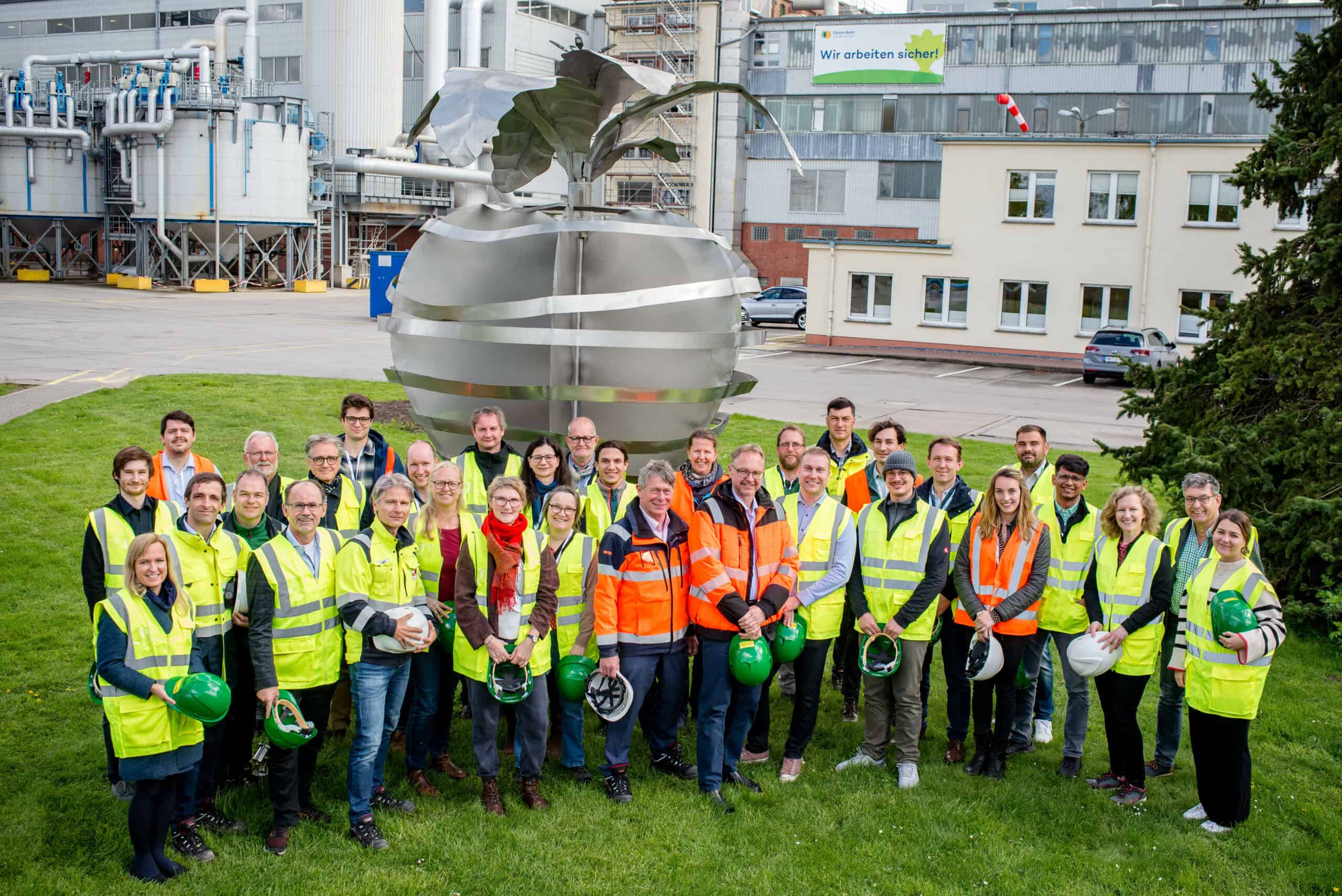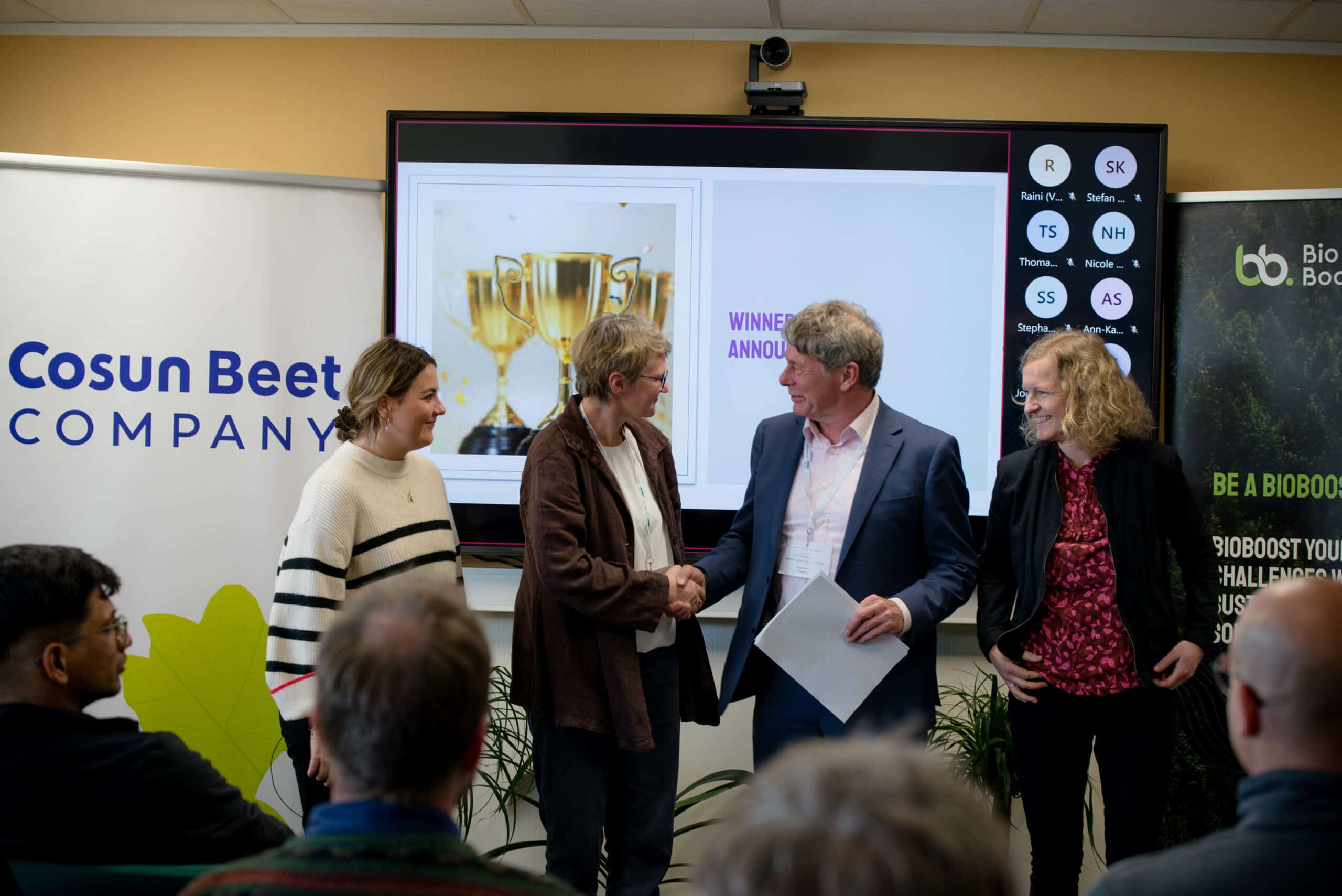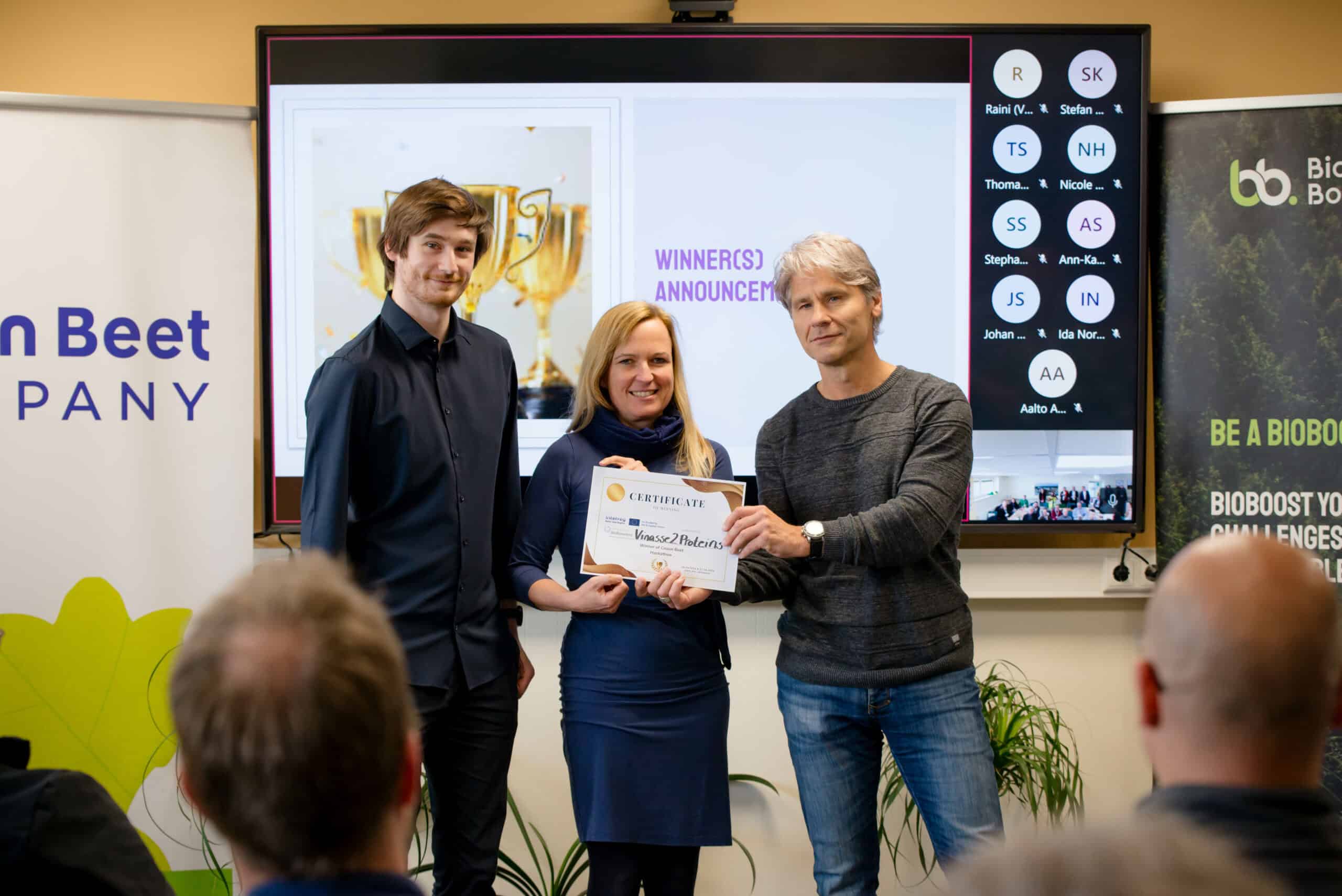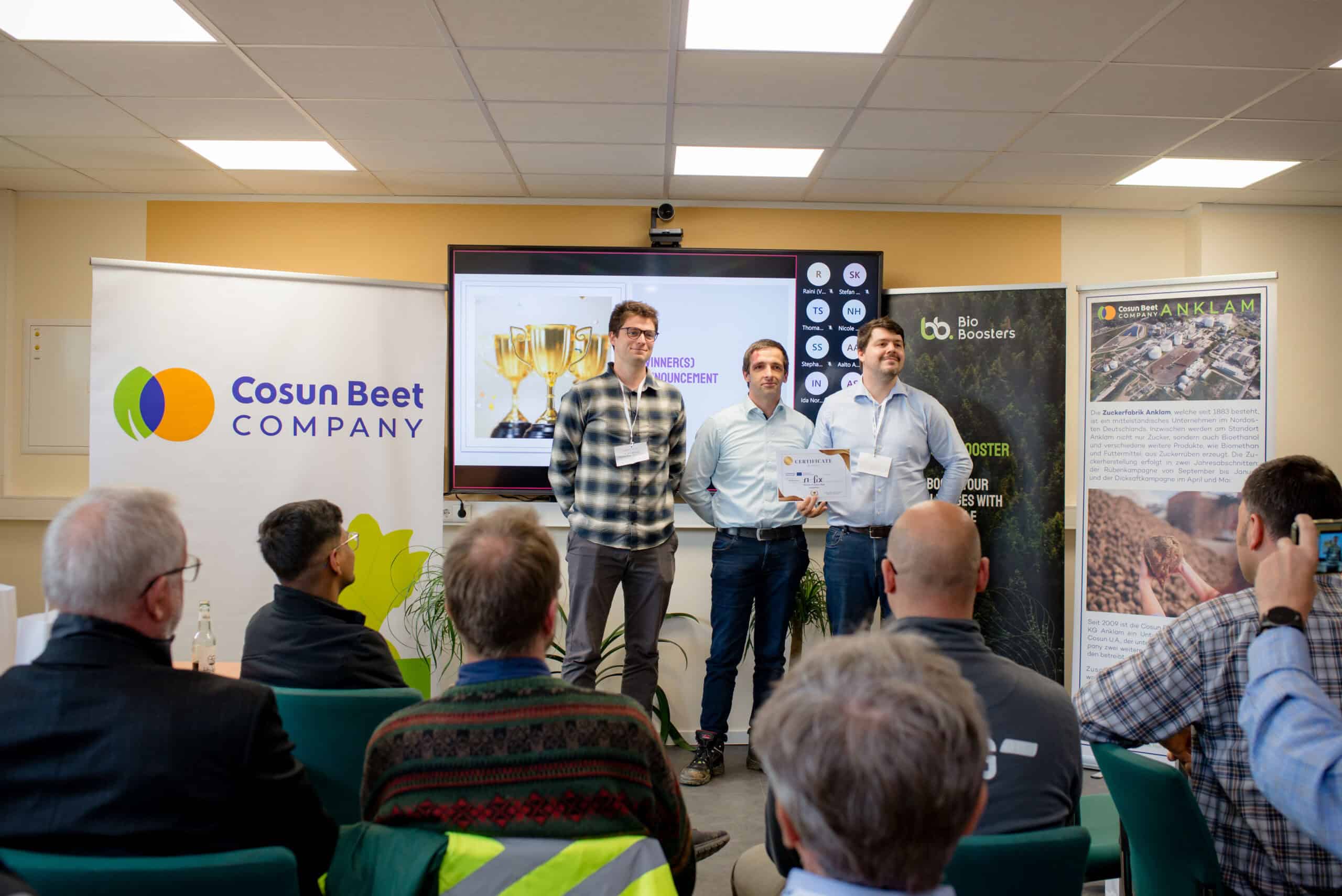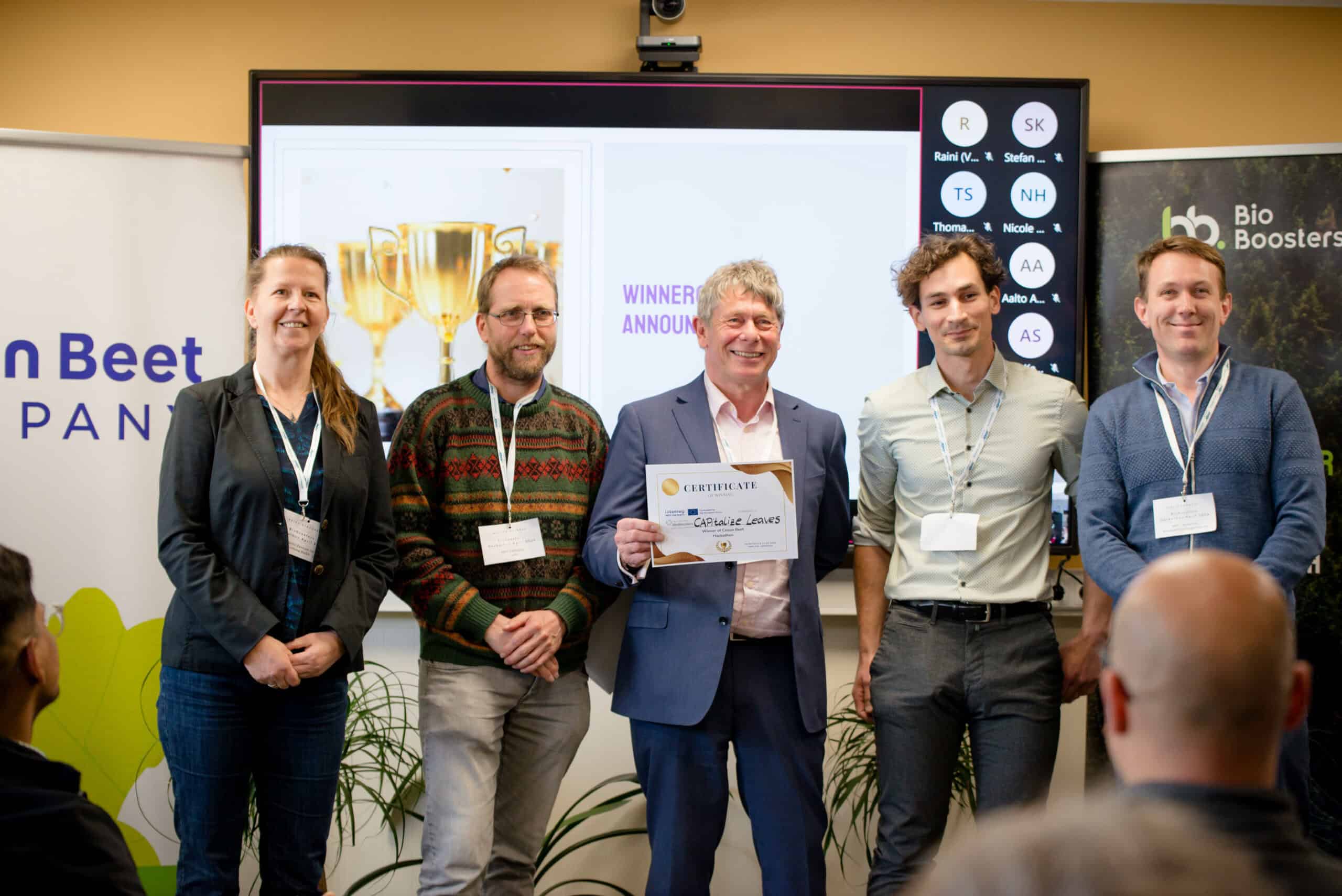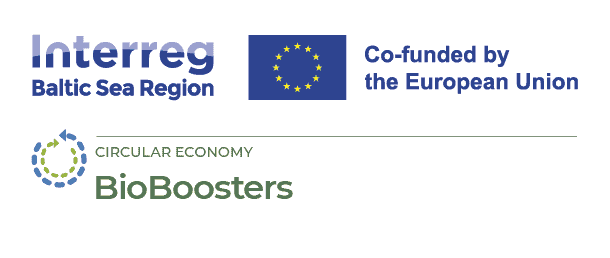
Successful COSUN BEET Hackathon Marks Innovation in Sustainable Agriculture
25 April 2024
Eight teams took part and developed their ideas. COSUN BEET named three winning teams of the COSUN BEET Hackathon. They will now work with the COSUN BEET Co. to prepare the next steps in realising their project ideas. The solutions include useful microorganisms for resilient agriculture, the production of new protein-rich and high-quality products using fungi and algae, and the use of sugar beet leaves to produce high-quality chemicals.
The challenge, the so-called Bioboosters Hackathon, was launched in January 2024. Organised by WITENO, the science and technology park N°O° with many years of expertise in areas such as the bioeconomy and start-up consulting from Greifswald, the COSUN BEET Co. was looking for solution providers for the utilisation of side streams from sugar production. Of the 26 proposals submitted, COSUN BEET decided to continue working with ten of them. These were developed over a period of around four weeks. The teams were accompanied by twelve mentors from the region as well as from Denmark, Finland and Sweden. They provided the teams with valuable tips and comprehensive expertise throughout the hackathon.
On 16 and 17 April, eight teams presented their solutions and a jury from COSUN BEET selected three winning teams in close consultation with the mentors:
Team n-fix from Belgium has developed an innovative method to produce microbial biofertilizers from beet pulp digestate, promising to reduce greenhouse gas emissions in sugar beet cultivation while enhancing plant robustness, yield, and sugar content, along with minimizing nitrogen input.
With its solution, the Team Vinasse2Proteins from Biberach University of Applied Sciences is focussing on the increasingly important role of plant proteins in the sustainable food supply of the future. These can be obtained, for example, from mushrooms that grow on residues from the bioethanol plant. The residual water is still of such good quality that it can be used to cultivate algae, which in turn can be processed into food.
Team CAPitalize Leaves, a consortium of the Helmholtz Centre for Environmental Research UFZ and the German Biomass Research Centre DBFZ, Leipzig, aims to further develop the innovative, climate friendly Capraferm process, which enables the conversion of beet leaves into carboxylic acids that can be used as starting materials for high-quality chemicals.
All three solutions fulfil COSUN BEET’s need to convert sugar beet residues from waste into value. “Our mission is to utilise the full potential of plants in a transparent and circular way. We call this the Plant Positive Way,” says Matthias Sauer, CEO of COSUN BEET. In addition, Jenny Stukenbrock, organiser of the COSUN BEET Hackathon on the COSUN BEET Co. side, says: “The COSUN BEET Hackathon was a complete success and showed the possibilities for a sugar beet biorefinery of the future. It was a fantastic, inspiring, and motivating atmosphere. We are happy and proud that so many great teams found their way to Anklam.” This view was shared by the participating teams. As Aaron Maes, member of team N-Fix, put it: “In one word „Lovely”. The participants pin concrete expectations on the hackathon – Flavio Baleeiro of team CAPitalize Leaves: “Our ultimate goal is to produce these chemicals on a larger scale so that they can replace less sustainable chemicals that are currently supplied by the petroleum or palm oil industry. We expect to make progress in our tests with CBC’s substrates and better understand how COSUN BEETs would like to implement this.”
The competition offered participants (companies, start-ups, universities, and non-university research institutions) not only a platform to present their innovations, but also an opportunity to network, exchange ideas and discuss the potential of the bioeconomy for the region. Cedric Klimt of team Vinasse2Proteins described his hackathon experiences like this: „With this hackathon the scientific spirit meets the hackathon concept very well, we develop our idea, we meet with other groups, we meet with the people from COSUN BEET and develop our ideas, get new opportunities and new hints what is important for the Co., what is important for the scientific community, find our meeting points and develop our idea more and more.“
“Testing this particular hackathon model for the first time in our region was a very exciting and inspiring experience for us as organisers. It was wonderful to work with the teams, who were very open and appreciative. I also particularly enjoyed working with the COSUN BEET challenge organiser and shaping the process. Trust, understanding, commitment and ultimately a lot of fun and motivation made this great success possible,” says Dr Gudrun Mernitz, organiser from WITENO GmbH.
WITENO is part of the international BioBoosters project led by the Jamk University of Applied Sciences and funded by the Interreg Baltic Sea Region programme. The project brings together nine bioeconomy innovation networks from countries around the Baltic Sea: Finland, Sweden, the Baltic States, Poland and Germany. The project organises 18 hackathons to support responsible business practices and promote the transition to a circular economy for bioeconomy companies.






